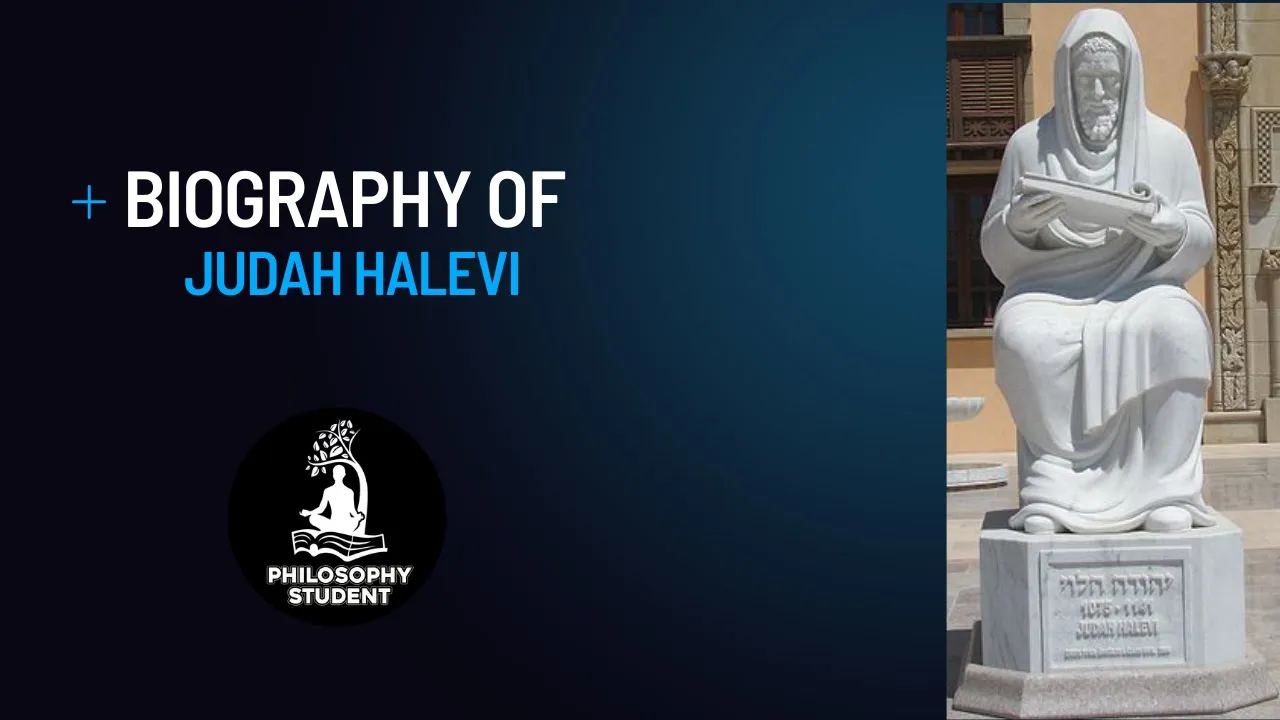A Spanish Jew, Judah Halevi (Yehuda Halevi) was a physician, poet, and philosopher. His most enduring fame is as Hebrew poet, and much of what he composed in the eleventh century is still present in modern Jewish liturgy. As a philosopher, he is known for The Kuzari, which posits that religious fulfillment is possible only in the presence of God, and God’s presence is to be felt most in Israel.
Born in Toledo, Spain, in 1075 or 1086, Halevi journeyed to the Holy Land (the Crusader Kingdom of Jerusalem) in 1141, only to die shortly after his arrival.
In his youth, Halevi left his native Toledo and traveled to Granada, at the time the focal point of Jewish intellectual life. There he came under the mentorship of Moses Ibn Ezra. He was educated in Jewish scholarship, Arabic literature, and (in Arabic translation) Greek philosophy and science. He became a physician of high reputation and may have served the court in Toledo as a physician. In any event, his medical work kept him so busy that he complained of having too little time to devote to scholarship. Halevi wrote prose in Arabic and reserved Hebrew for his poetry. The most prolific of Hebrew poets of the period, he is still regarded as the greatest of the Middle Ages.
Halevi was adequately assimilated into Spanish culture but, as an observant Jew, felt it incumbent upon himself to end his days in Israel. At an earlier point in his life, he saw in philosophy an alternative to religion as a path to the truth. But he came to believe that only faith and revealed religion would bring him enlightenment. Moreover, the God of Israel was most strongly manifested in Israel, and so he embarked, arriving in the port of Alexandria on September 8, 1140, where he met with a warm welcome. From here, he journeyed to Cairo, where highly placed friends tried to persuade him to take up residence. Instead, he returned to Alexandria, from which he sailed to Israel on May 14, 1141. Sometime during the summer, he died—probably after having reached Palestine. Legend has it that he was run over by an Arab horseman almost immediately on his arrival in Jerusalem.
His most important philosophical work, The Kuzari, was written in large measure to liberate Judaism from philosophy. The work presents his argument that reason (philosophy) alone is insufficient to the attainment of truth and only religious tradition and faithful devotion lead to revelation. In the Kuzari, he expounded on this thesis and defended Judaism against the attacks of non-Jewish philosophers, including those adhering to Aristotelean logic.




































